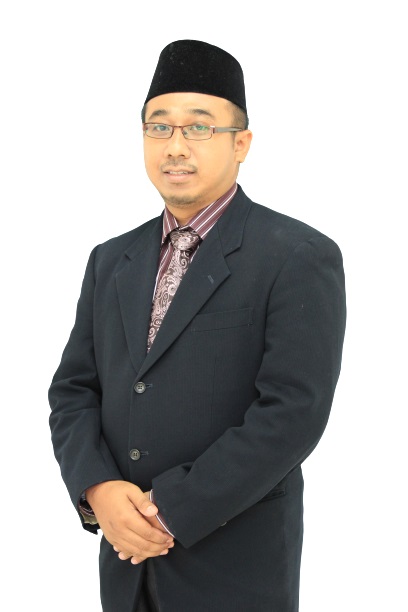FAHRUL IRFAN BIN ISHAK
@unikl.edu.my
Senior Lecturer
Universiti Kuala Lumpur
Halal Industry Expert
EDUCATION
PhD. Shariah and Halal Laws (Universiti Putra Malaysia)
Master of Comparative Laws (International Islamic University Malaysia)
B.A. (Hons) Shariah Islam (Al-Azhar University)
RESEARCH, TEACHING, or OTHER INTERESTS
Religious studies, Multidisciplinary, General Arts and Humanities, General Social Sciences
Scopus Publications
Scholar Citations
Scholar h-index
Scholar i10-index
Scopus Publications
Ezwan Rafiq Husin, Husin Salamon, A. Rosman, Nasrul Hisyam Nor Muhamad, Sulaiman Shakib Mohd. Noor, M. N. Hamdan, A. Ruskam, S. Kadikon, Mohd Rilizam Rosli, Hussin Junoh,et al.
SynthesisHub Advance Scientific Research
Advertisement on signboards often revolves around issues pertaining to aggression sexual distractions and unhealthy lifestyle. Therefore the objective of this study is to analyze the compliance of sharia matter on signboards in Kelantan in accordance to the persuit of the motto which is Developing with Islam. This model may then be used as an exampalary model and maybe adopted to other states in Malaysia which stated that Islam as the formal religion in Malaysia. This qualitative analysis is done through observation and comparing the specifications on women and men who covers their aurat on the signboard advertisement based on al-Quran, hadith, and by elaboration of Muslim scholars. This research is done by 2019 only. Around 30 signboards has been reviewed in Kota Bharu and Pangkalan Chepa district. Kota Bharu was selected because it is urban capital administration area of Kelantan which located also state administration, office of chief minister, and Dewan Undangan Negeri or DUN Kelantan. Pengkalan Chepa has been selected as study location because of the location of domestic airport as the first access tourist to Malaysia. Study found that most of the advertisement signboard in Kelantan are fulfill the sharia compliant. There are two forms of advertisement signboard. The first is advertisement signboard that displays men and women in the form of covering aurat. The second is advertisement signboard that does not display any model. This type of advertisement also sharia compliant and has the human right value by avoiding human manipulation in advertisement. There is also advertisement sharia compliant involves non-Muslim also in two forms. The first form is advertisement involves in non-Muslim woman not wearing a head scarf but in proper attire without sexual attraction. The second form is advertisement involves in non-Muslim by wearing a head scarf with proper attire. Even the model is non-Muslim, it is also sharia compliant advertisement to avoid sexual attraction based on method prevention from something bad or sin as Sadd al-Dharai in Islam. There are some advertisements of beauty product display women covering their veils with the tight wear. It is non-sharia compliant because hijab concept of Muslimah must be covering aurat and not tight. It is suggest that company of beauty product just display the woman body shape in the special catalogue for women only not in the advertisement signboard. As a conclusion, most of the advertisement signboards in Kelantan are sharia compliant. It can be a pioneer for another state in Malaysia application. It is also suggests to another researcher to study advertisement in social media, such youtube ads, facebook, instagram, advertisement in television and many more.
Ezwan Rafiq Husin, Hussin Salamon, A. Rosman, Nasrul Hisyam Nor Muhamad, Sulaiman Shakib Mohd. Noor, M. N. Hamdan, A. Ruskam, S. Kadikon, Mohd Rilizam Rosli, NurJariyah Hamzah,et al.
SynthesisHub Advance Scientific Research
Hygiene in food preparation for Muslim consumer is the same as Halal requirements. The contradicting term of halal is haram or non-halal. Halal is associated with the concept of hygiene because of what is permitted in Islam is related with human health (www.hdcglobal.com). As an example, a dead but non-slaughtered animal is normally associated with a disease. Most diseases originated or carried in the animals blood. Therefore, slaughtering is mandatory to ensure the blood is completely out from the animals body, thus minimizing the chance of microbial infection. Lack of awareness the hygiene logistics practices in animal farms results in unhealthy and dangerous consumption of meat and animals to be eaten. Thus, this research is trying to study the hygiene logistics practice in Osman Goat Farm at Kangkar Tebrau as one of the largest farm managed by Muslim in Johor. This study uses qualitative method by interviewing the authorized person to ensure that hygiene logistics practiced has been done. Semi structured interview and participation observation has been used as the study instrument to gain data. Case study has been used as the method of analysis by triangulation data between the interview and observations. Interview was conducted with the authorized person such as Mr. Osman who is the director and Mr. Supri who is his supervisor. The study found that Osman Goat Farm has implemented most of the requirement of halal logistics. Hygiene logistics aspects in this study consists of storage, processing, packaging, handling, and transportation. Osman Goat Farm had implied all the hygiene logistics practices measured. Surrounding factors such as the farm location, which is near to schools and residents area allows Osman Goat farm to implements hygiene logistics practices very well. This study recommends an innovation in storage system especially the food container and drink for the goat. The innovation also includes new waste management design system as issued in chapter 4. These solutions can be the benchmark or design of hygiene logistics practices of goat farming industries in Malaysia.

